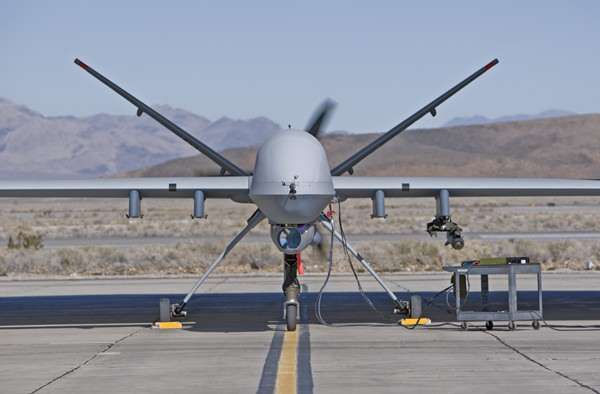The ACLU Blogs an Oppressive, Drone-Filled Hypothetical Future
- OurStudio

- May 2, 2012
- 3 min read

Worried about drones and your civil liberties? Well, you probably should be, according to the American Civil Liberties Union (ACLU). Not only do they do things like sue the U.S. government for documents about the now-officially real program of covert assassinations in the Middle East, but damn it, they also like to blog lists of what may happen to the U.S. now that domestic drones and what that means for your future liberties are a hot news item (and will be until at least 2015, most likely).
Observe the ACLU's blog of rights today on "Drones: The Nightmare Scenario":
In our drones report, we discuss the coming onslaught of domestic drones and the weak state of the privacy laws that should protect us, and we outline our recommendations for protections that Congress and local governments should put in place.
But if nothing is done, how might things go? Let's take a look at how police drone use could unfold:
1) The FAA's new rules go into effect. Acting under orders from Congress, the FAA in coming months and years will significantly loosen the regulations that have been holding back broader deployment of drones. Starting later this year, for example, the FAA must allow any "government public safety agency" to operate any small drone (under 4.4 pounds) as long as certain conditions are met.
2) More and more police departments begin using them. The FAA's new rules allow for the release of pent-up demand among police departments for cheap aerial surveillance. Ownership of drones quickly becomes common among departments large and small. Organizations are formed by police drone operators, who exchange tips and advice. We also begin to hear about their deployment by federal agencies, other than on the border.
3) We start to hear stories about how they're being used. Most departments and agencies are relatively careful at first, and we begin to hear stories about drones being put to use in specific, mostly unobjectionable police operations such as raids, chases, and searches supported by warrants.
4) Drone use broadens. Fairly quickly, however, we begin to hear about a few departments deploying drones for broader, more general uses: drug surveillance, marches and rallies, and generalized monitoring of troubled neighborhoods.
5) Private use is banned. A terrorist like the pilot who crashed his planeinto an IRS building in Texas uses an explosives-laden drone to try to attack a public facility. In response, the government clamps down on private use of the technology. The net result is that the government can use it for surveillance but individuals cannot use it to watch the government.
6) Drones become able to mutually coordinate. Multiple drones deployed over neighborhoods can be linked together, and communicate and coordinate with each other (see this video for an early taste of what that could look like). This allows a swarm of craft to form a single, distributed wide-area surveillance system such as that envisioned by the "Gorgon Stare" program.
The rest is a disturbingly credible (or, at least worth considering) vision of this technology which will not be crammed back into the box. After all, if the legal system cannot keep up with the existence of smartphones, or airplanes, with any sanity, odds are that police and other domestic authorities will get away with a lot when it comes to drones before courts remember things like the Fourth Amendment.
Reason on drones




Comments